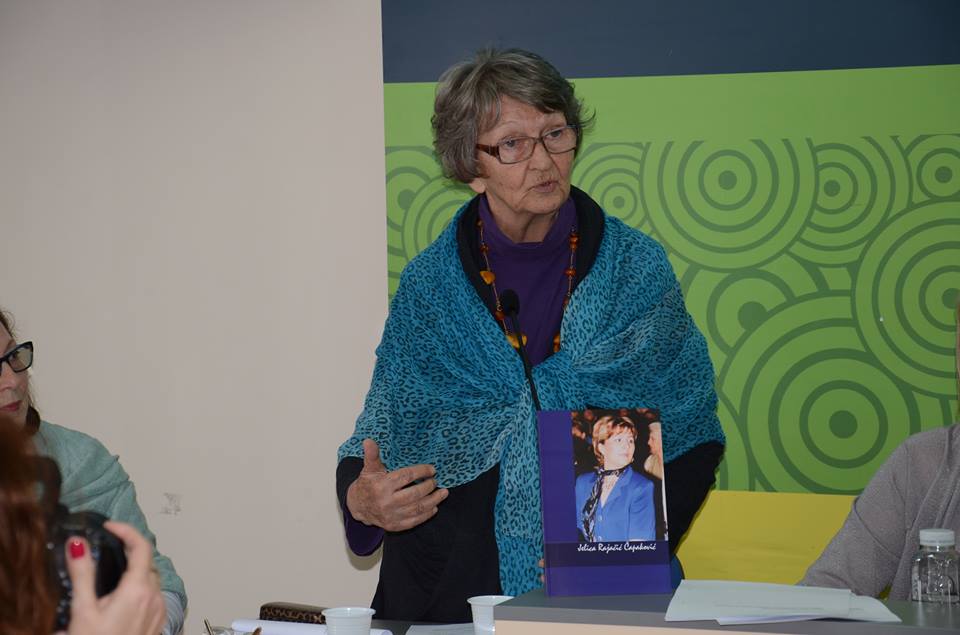Jelica Rajacic Capakovic: A politician who indebted us
About the importance of Jelica Rajacic Capakovics work on gender equality and her legacy in our society, wrote PhD professor Svenka Savic in Jelica’s biography.
Jelica Rajacic Capakovic was among the first women in Serbia who institucionalized gender equality. She was the first general secretary for gender equality in the first democratic goverment in Autonomus province of Vojvodina, Serbia (2000-2008) after socialism collapsed in Western Balkan. She also formed a Provincial Gender Equality Institute, a „Women goverment“, and an annual award for women who contributed to gender equality. That award was the first of its kind in Europe.
About the importance of Jelica Rajacic Capakovics work on gender equality and her legacy in our society, wrote PhD professor Svenka Savic in Jelica’s biography.
Svenka Savic, PhD emerita professor and coordinator of the „Womens studies and research“ organization wrote and published Jelica’s life story. Institualization of gender equality was initiated when Jelica was a part of the Serbian Reformists party who got a chance to be a part of the executive authority in Vojvodina, Serbia. Although she was at first a secretary without portfolio or only a member of the team in charge of pursuing gender equality, Jelica didn’t settle with that function or give up on the idea of gender equality, so as she said, she „started to fight like a lion“.
In her biography she said that the beginning of gender equality advocacy didn’t go easy.
“In the executive authority of Vojvodina, the subjects which we oppend in the beginning evoked sneer and laughter, but were later deemed respect. Everyone was mindful of how they will behave in the public eye. When a board of directors or some other governing body would form I would always highlight that there aren’t enough women even tho there was no obligationing quotas, or some resolutions with whom some body would be obligated to take care about the percentage of women in those boards. And that evoked respect towards me.”
Jelica Rajacic advocated not only for larger share of women in politics, positions of power and decision-making, but she was also concerned about those in the margins of society – about the underprivileged and the victims of domestic violence. During her mandate an SOS phone for women who are vistims of domestic violence was established, and some beneficial laws, as she said, were approved.
Jelica Rajacic Capakovic died in 18th April 2008, but memories of her deeds should not die – according to Jelica’s firends, coworkers and feminists in Serbia.
The author of her biography Svenka Savic said during the promotion of her book commemorating ten years since Jelica’s death, that we should regard women from our contemporary history as remarkable, and that the inheritors of Jelica’s ideas should in stand united and continue to contribute to the vision of a democratic society that Jelica lived. She also said in her book about Jelica:
“The life story of Jelica Rajacic Capakovic confirms one of the most common paroles in women’s movement, that the private matters are at the same time the political. Jelica Rajacic Capakovic is an example of conscious decision for political activity, while maintaining values that are necessary for that kind of success: harmonious relationships with children and family. So, that also confirms the second important principle of today’s women activism – success is the result of unity between public and private affairs, and not an either-or choice which the patriarchal model imposes.”

